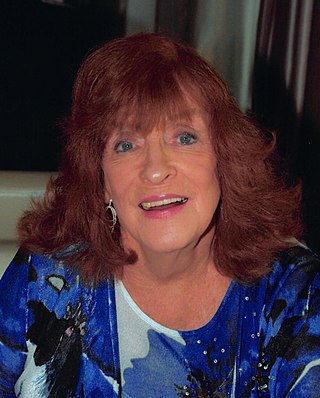Related Research Articles

Dave Winer is an American software developer, entrepreneur, and writer who resides in New York City. Winer is noted for his contributions to outliners, scripting, content management, and web services, as well as blogging and podcasting. He is the founder of the software companies Living Videotext, Userland Software and Small Picture Inc., a former contributing editor for the Web magazine HotWired, the author of the Scripting News weblog, a former research fellow at Harvard Law School, and current visiting scholar at New York University's Arthur L. Carter Journalism Institute.

A blog is an informational website published on the World Wide Web consisting of discrete, often informal diary-style text entries (posts). Posts are typically displayed in reverse chronological order so that the most recent post appears first, at the top of the web page. Until 2009, blogs were usually the work of a single individual, occasionally of a small group, and often covered a single subject or topic. In the 2010s, "multi-author blogs" (MABs) emerged, featuring the writing of multiple authors and sometimes professionally edited. MABs from newspapers, other media outlets, universities, think tanks, advocacy groups, and similar institutions account for an increasing quantity of blog traffic. The rise of Twitter and other "microblogging" systems helps integrate MABs and single-author blogs into the news media. Blog can also be used as a verb, meaning to maintain or add content to a blog.
RSS is a web feed that allows users and applications to access updates to websites in a standardized, computer-readable format. Subscribing to RSS feeds can allow a user to keep track of many different websites in a single news aggregator, which constantly monitor sites for new content, removing the need for the user to manually check them. News aggregators can be built into a browser, installed on a desktop computer, or installed on a mobile device.

A librarian is a person who works professionally in a library providing access to information, and sometimes social or technical programming, or instruction on information literacy to users.
The American Library Association (ALA) is a nonprofit organization based in the United States that promotes libraries and library education internationally. It is the oldest and largest library association in the world, with 49,727 members as of 2021.
On the World Wide Web, a web feed is a data format used for providing users with frequently updated content. Content distributors syndicate a web feed, thereby allowing users to subscribe a channel to it by adding the feed resource address to a news aggregator client. Users typically subscribe to a feed by manually entering the URL of a feed or clicking a link in a web browser or by dragging the link from the web browser to the aggregator, thus "RSS and Atom files provide news updates from a website in a simple form for your computer."

Jessamyn Charity West is an American library technologist and writer known for her activism and work on the digital divide. She is the creator of librarian.net. She is the Vermont Chapter Councilor of the American Library Association, and was Director of Operations at the massive group blog MetaFilter from 2005 to 2014. West owns MetaFilter.
Digital reference is a service by which a library reference service is conducted online, and the reference transaction is a computer-mediated communication. It is the remote, computer-mediated delivery of reference information provided by library professionals to users who cannot access or do not want face-to-face communication. Virtual reference service is most often an extension of a library's existing reference service program. The word "reference" in this context refers to the task of providing assistance to library users in finding information, answering questions, and otherwise fulfilling users’ information needs. Reference work often but not always involves using reference works, such as dictionaries, encyclopedias, etc. This form of reference work expands reference services from the physical reference desk to a "virtual" reference desk where the patron could be writing from home, work or a variety of other locations.
Michael Gorman is a British-born librarian, library scholar and editor/writer on library issues noted for his traditional views. During his tenure as president of the American Library Association (ALA), he was vocal in his opinions on a range of subjects, notably technology and education. He currently lives in the Chicago area with his wife, Anne Reuland, an academic administrator at Loyola University.
This is a list of blogging terms. Blogging, like any hobby, has developed something of a specialized vocabulary. The following is an attempt to explain a few of the more common phrases and words, including etymologies when not obvious.

Library 2.0 is a proposed concept for library services that facilitate user contributions and other features of Web 2.0, which includes online services such as OPAC systems. The concept is based on Radical Trust, and proponents suggest it will eventually replace traditional libraries. The term "Library 2.0" was coined by Michael Casey in 2006 on his blog Library Crunch.
The RSS Advisory Board is a group founded in July 2003 that publishes the RSS 0.9, RSS 0.91 and RSS 2.0 specifications and helps developers create RSS applications.
The Deleting Online Predators Act of 2006 (DOPA) is a bill brought before the United States House of Representatives on May 9, 2006 by Republican Pennsylvania Representative (R-PA) Mike Fitzpatrick. The bill, if enacted, would have amended the Communications Act of 1934, requiring schools and libraries that receive E-rate funding to protect minors from online predators in the absence of parental supervision when using "Commercial Social Networking Websites" and "Chat Rooms". The bill would prohibit schools and libraries from providing access to these types of websites to minors or create restrictions to use of these type of sites. The bill also would require the institutions to be capable of disabling the restrictions for "use by an adult or by minors with adult supervision to enable access for educational purposes."
Readers' advisory is a service which involves suggesting fiction and nonfiction titles to a reader through direct or indirect means. This service is a fundamental library service; however, readers' advisory also occurs in commercial contexts such as bookstores. Currently, almost all North American public libraries offer some form of readers' advisory.
The Library and Information Technology Association (LITA) was a division of the American Library Association (ALA), focusing on the intersections of libraries and information technology. Founded in 1966 and headquartered in Chicago, LITA was dissolved in 2020 amid declining membership and persistent budget deficits. LITA merged into a new ALA division, Core.

Emily Drabinski is an academic librarian, author, and teacher, serving as president of the American Library Association since 2023.

Anne R. Kenney was an American librarian and archivist known for her work in digital preservation.

Betty J. Turock is an American librarian and educator who served as president of the American Library Association from 1995 to 1996. She was a member of the faculty of the Rutgers School of Communication and Information for 22 years. Turock is best known for her advocacy for equity of access to electronic information via the Internet as well as for championing diversity in the library profession.

Tracie D. Hall is an American librarian, author, curator, and advocate for the arts who has served as the executive director of the American Library Association since 2020. Hall is the first African American woman to lead the association since its founding in 1876.

Patricia "Patty" Wong is the city librarian of Santa Clara, California. Wong was the president of the American Library Association (ALA) for the 2021-2022 term and is the first Asian American president of the ALA. She has been on the faculty at the San Jose State University iSchool since 2006, teaching subjects such as equitable access to library services, library management, and library services to young people.
References
- 1 2 3 "Jenny Levine: Future of Librarians Interview". CollegeOnline. January 13, 2012. Retrieved October 24, 2014.
- ↑ "RSS Advisory Board Goes Public". RSS Advisory Board. January 30, 2006. Retrieved October 24, 2014.
- 1 2 3 Michael P. Sauers (October 29, 2006). Blogging and RSS: A Librarian's Guide . Information Today. pp. 63–66. ISBN 9781573872683.
- 1 2 3 "Jenny Levine: Movers and Shakers 2003". Library Journal. March 15, 2003. Retrieved October 24, 2014.
- ↑ Liz Danforth (June 28, 2011). "ALA Creates Games and Gaming Round Table". Library Journal. Retrieved October 24, 2014.
- ↑ "What Is a Shifted Librarian?". May 20, 2004. Retrieved October 24, 2014.
- ↑ Frances Jacobsen Harris (April 1, 2005). I Found it on the Internet: Coming of Age Online . American Library Association. p. 195. ISBN 9780838908983.
- ↑ Helene Blowers; Robin Bryan (May 1, 2004). Weaving a Library Web: A Guide to Developing Children's Websites. American Library Association. pp. 9–12.
- 1 2 "Five Things You May Not Know about Me". Facebook . December 27, 2006. Retrieved October 24, 2014.